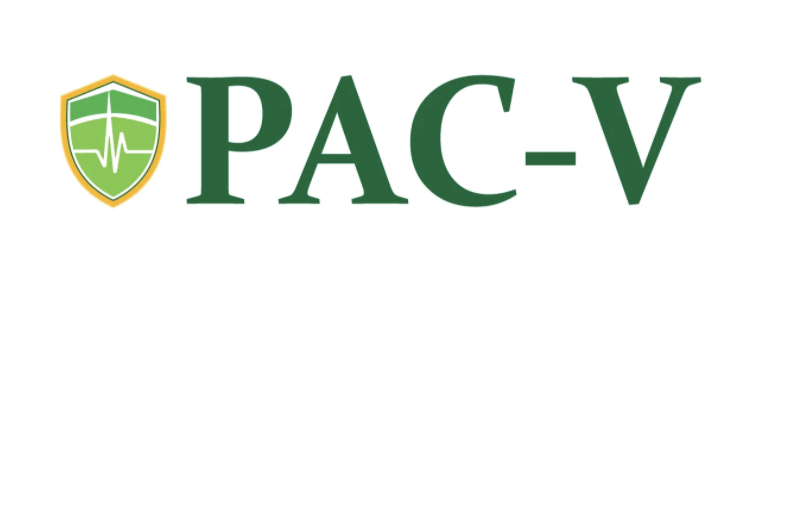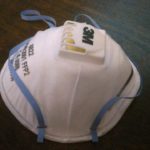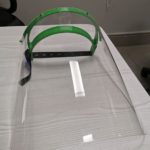NEWS
April 16, 2020

IN BRIEF
Fouad Bajwa’s expertise extends from being an Internet evangelist and social entrepreneur to artificial intelligence, governance and biomedical engineering. That last area of interest is something that’s been keeping him awake at night of late. Bajwa is part of a growing group of Pakistani volunteers under the banner of PAC-V – Pakistan Against Covid-19 Volunteers. The group comprises just over 500 engineers and doctors, development experts, funders, entrepreneurs, manufacturers and others who are dedicating their time, skills and resources to producing parts for ICU grade ventilators and other essential personal protective equipment (PPE) like face shields, goggles and hazmut suits. [...]
SHARE
Fouad Bajwa’s expertise extends from being an Internet evangelist and social entrepreneur to artificial intelligence, governance and biomedical engineering. That last area of interest is something that’s been keeping him awake at night of late.
Bajwa is part of a growing group of Pakistani volunteers under the banner of PAC-V – Pakistan Against Covid-19 Volunteers. The group comprises just over 500 engineers and doctors, development experts, funders, entrepreneurs, manufacturers and others who are dedicating their time, skills and resources to producing parts for ICU grade ventilators and other essential personal protective equipment (PPE) like face shields, goggles and hazmut suits. They coordinate online and are based in active hubs in Islamabad, Karachi and Lahore.
 Bajwa is part of our Accountability Incubator in Pakistan and is working on a mass skills dissemination program promoting learning, community and recognition that tries to remove the barriers to learning. But since the Covid-19 pandemic, he’s also been an intrinsic part of PAC-V, helping spread the word about the campaign and inviting partners to join the campaign alongside mechanical engineer Dr Bilal Siddiqui who is leading the group’s efforts.
Bajwa is part of our Accountability Incubator in Pakistan and is working on a mass skills dissemination program promoting learning, community and recognition that tries to remove the barriers to learning. But since the Covid-19 pandemic, he’s also been an intrinsic part of PAC-V, helping spread the word about the campaign and inviting partners to join the campaign alongside mechanical engineer Dr Bilal Siddiqui who is leading the group’s efforts.
“What we’re trying to do is rapidly create products for frontline medical care providers. The work motivated me to get involved as the group needs a lot more than technical skills. We need massive mobilization of engineering resources, and to find contacts in hospitals, government and beyond that can assist in our distribution efforts. It’s a huge emergency response situation,” he explains.
Fear and anxiety have been rampant in Pakistan as communities have tried to deal with the outbreak and also navigate a lot of misinformation around the Covid-19 response in the country. The government has a national lockdown in place until the end of April but has started loosening restrictions on some industries like the construction sector to try to ease the economic fallout. This has however led to markets and traders in some provinces defying the government’s lockdown efforts which has complicated the situation. As of April 16, Pakistan had 5 998 confirmed cases of Covid-19 and 107 deaths according to information from John Hopkins University.
Bajwa is helping to identify important skill sets, manage resource mobilisation, communications and media outreach for PAC-V and is working hard on reflecting a useful, singular narrative to explain their work and also keep the public reliably informed of developments.
Multiple groups within the volunteer effort are working on the design, engineering, manufacturing and marketing of PPE equipment including face masks, goggles, non-contact thermometers, hazmat suits and tunnels that spray antiviral spray on shoppers at the entrance to stores. A big component of the PAC-V work includes 3D printing parts but also open sourcing all the designs for use anywhere in the world.
“This includes a design for a ventilator that splits to cater for 4 patients each,” Bajwa says. The group is using government channels to move the goods and is collaborating with senior government aids to ensure the equipment reaches the areas that are most in need. Donations have been driving these 3D printing efforts which are also driven by volunteers using private equipment with idle capacity.
 “On a national scale, we’re helping the government equip itself for the first wave but also thinking about what happens in the second wave of the pandemic. There are other efforts like a special PAC-V ventilator repair group working to increase capacity,” he adds.
“On a national scale, we’re helping the government equip itself for the first wave but also thinking about what happens in the second wave of the pandemic. There are other efforts like a special PAC-V ventilator repair group working to increase capacity,” he adds.
With a population of more than 200 million people however, this will be no easy task. And as Bajwa explains, awareness and capacity are two very different problems. “The government recently contacted me to see if we could create standees (upright banners) to distribute in all provinces that would provide information on healthy behaviours like washing hands and social distancing in all local languages.”
Bajwa says that most Pakistanis “have the sense to go the last mile to help each other”. “There are so many people who are unemployed but we’ve also seen hundreds of initiatives to create food packs for the unemployed. The government has also been raiding the idiots who are stockpiling essential goods. The majority of us are really working well together to get things done.”
To donate to the effort, visit our Global Giving campaign here or visit https://pacvnow.org/.
